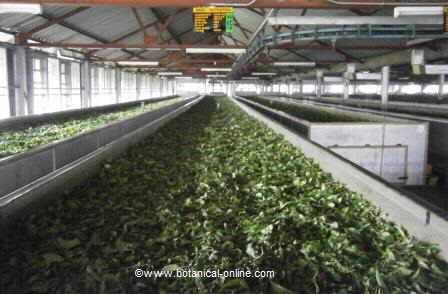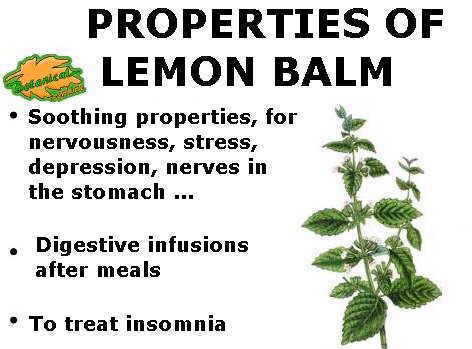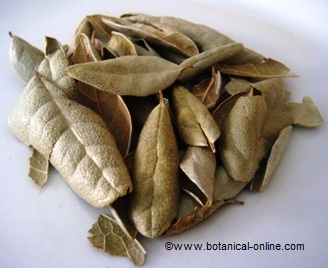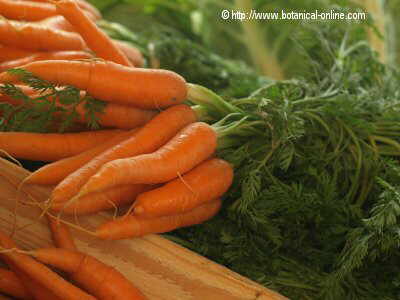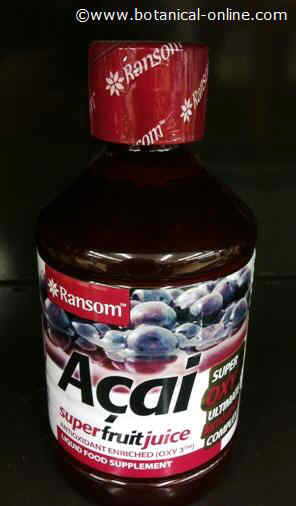Contents
What is vitamin K good for?
Characteristics of vitamin K
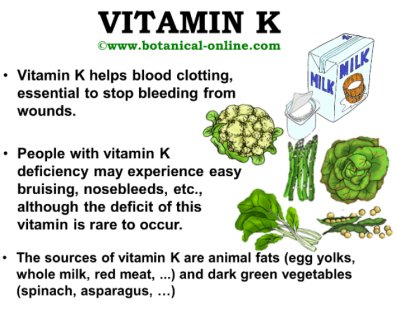 Main curative properties of vitamin K Main curative properties of vitamin K |
Vitamin K belongs to the group of liposoluble vitamins, those vitamins that dissolve in fat but do not dissolve in water. It was discovered in 1935 by Carl Peter Henrik Dam, a famous Danish biochemist. It was demonstrated in studies carried out on chickens, that this vitamin is necessary for blood clotting. Indeed, the name of this vitamin is from the first letter of Danish Koagulation = coagulation.
The reason for this property is that this vitamin acts on the liver and helps to produce a series of coagulation factors, including prothrombin and Factor II, Factor X, factor VII, etc. Clotting factors are a number of substances necessary for blood clotting.
Where can vitamin K be found?
- Animal sources of vitamin K: In animal foods, the highest proportion is in the liver and egg yolks. A smaller amount is present in other foods, as for example milk.
- Vegetable sources of vitamin K: Vitamin K appears in plants as phylloquinone. It is found in plant foods in different degrees; however the richest plant sources are vegetableswith dark green leaves. The richest are the collard greens (550 mcg / cup), chard (300 mcg / cup), spinach (144 mcg / cup), turnip leaves (138 mcg).
Other foods that contain it are cabbage, brussels sprouts , broccoli, asparagus, cauliflower. Other foods that also contain it are soybean oil, olive oil, strawberries, kiwis, pistachios, bananas, whole grain or wheat germ.
- Organic sources of vitamin K: Vitamin K is also produced by bacteria in the intestine. It is considered that these organisms can produce up to 80% of vitamin K total amount. This type of vitamin K known as menaquinone.
- Supplements: Artificial Supplements of vitamin K present it in the form of menadione. Supplements should only be used under prescription and in cases where there is deficiency of this vitamin, which is usually quite rare. They are usually offered in capsules at doses of 25 to 60 mcg in multivitamin complex.
Properties of vitamin K
– It produces blood clotting: Vitamin K is necessary for the presence of blood clots that will, for example, close wounds and stop bleeding, control any bleeding nose, gums bleeding or prevent bruises from simple contact or a very light blow.
– It helps in preventing osteoporosis and bone fractures. Vitamin K helps in fixing the calcium in the bones, it prevents bone weakness caused by decalcification and osteoporosis. Lack of vitamin K produces very weak bones that break easily.
– Anticancer properties: The possibility that vitamin K may help cancer drugs to stop the spread of the disease is being studied. According to these studies, as yet unconfirmed, this vitamin may slow the growth of cancer cells or even kill them.
– Post-surgery bleeding: To avoid the risk of bleeding after a surgery, surgeons often recommend supplements of vitamin K.
– Cardioprotective properties: The latest studies seem to suggest that this vitamin may be helpful in preventing cardiovascular diseases due to their ability to stop plaque formation of “bad cholesterol” (LDL) in the arteries.
Daily requirement of vitamin K
The RDA for this vitamin would be:
| Minimum daily requirements of vitamin K | ||
| Age | Men | Women |
| 0-6 months | 2 mcg (micrograms) daily | 2 mcg (micrograms) daily |
| 7-12 months | 2´5 mcg (micrograms) daily | 2’5 mcg (micrograms) daily |
| 1-3 years old | 30 mcg (micrograms) daily | 30 mcg (micrograms) daily |
| 4-8 years old | 55 mcg (micrograms) daily | 55 mcg (micrograms) daily |
| 9-13 years old | 60 mcg (micrograms) daily | 60 mcg (micrograms) daily |
| 14-18 years old | 75 mcg (micrograms) daily | 75 mcg (micrograms) daily |
| + 19 years old | 90 mcg (micrograms) daily | 90 mcg (micrograms) daily |
Deficiencies of vitamin K
Except in a few cases of babies who lack the necessary bacteria for the production of vitamin K, vitamin K deficiency occurs very rarely: a varied diet, along with an intestinal flora in good condition is usually sufficient to avoid occurrence of these deficiencies. However, deficiencies can appear in certain situations that could lead the doctor to prescribe vitamin supplements.
These deficiencies are usually present in people whose wounds are slow to shut down and bleed for a long time, even when there are minor cuts. Other symptoms that might indicate a problem of deficiency of vitamin K are the constant nosebleeds, blood in the urine and faeces, usual, long and abundant menstruations or bruising after unimportant blows or traumatisms.
The main anomalies that could cause a lack of vitamin K would be the following:
– Liver diseases: Some liver diseases can prevent the absorption of vitamin K.
– Intestinal diseases: Some intestinal diseases like Crohn’s disease, ulcerative colitis, frequent diarrhea, gall stones, pancreatic disease, malabsorption of food in the gut, etc, produce a poor absorption of fats. Since fats are necessary to dissolve the vitamin K, these problems may involve intestinal vitamin K deficiency. We could also include people who have problems of incompatibility with food, such as gluten intolerance.
– Ingestion of antibiotics: Antibiotics kill harmful bacteria in the body, but they also can destroy the intestinal bacteria necessary for the production of vitamin K. Frequent use of antibiotics can lead to deficiencies of vitamin K.
– Ingestion of cholesterol drugs: anti-cholesterol drugs that block cholesterol absorption in the intestine can also block the absorption of vitamin K.
– Ingestion of anticoagulants: The use of anticoagulants can interfere with vitamin K. In case of ingestion of many foods rich in vitamin K, one should inform the clinician who may require an appropriate adjustment of the dose of medication.
– Ingestion of high doses of vitamin E or vitamin A may interfere with the absorption of this vitamin. These vitamins can facilitate the absorption of vitamin K, but taken in large doses for a long time, may increase the chance of bleeding.
– Hemorrhagic disease of the newborn: Newborn babies may have problems of vitamin K deficiency because they sometimes do not have the right intestinal bacteria to produce it. This deficiency must be added the fact that breast milk has very low levels of this vitamin. The deficiencies of this vitamin in newborns manifest during the days after birth in the form of bleeding in the belly, blood in urine or feces. When the disease is more severe, it can cause bleeding in the head that can have fatal results. As a preventive measure some health agencies recommend that all newborns are given a dose of vitamin K in the form of phylloquinone right after birth.
Toxicity of Vitamin K
There is no evidence to show that, taken through food or manufactured by bacteria in the intestine, vitamin K can be toxic.
However, the same cannot be said about the artificial form of vitamin K or menadione. Vitamin K supplements should be taken only by prescription because they can be toxic. In young children the use of menadione causes hemolytic anemia and liver damage.
Vitamin supplements taken in very high doses can cause increased sweating and flushing. It boosts the power of anticoagulants and increases the chances of bleeding wounds.
Vitamin supplements may interfere with the absorption of glutathione, the major antioxidant in our cells, which protects our defenses and warns against the emergence of many degenerative diseases (cancer, cataracts, cholesterol, arthritis, diabetes, heart disease, aging, etc)
![]() More information about vitamins.
More information about vitamins.

